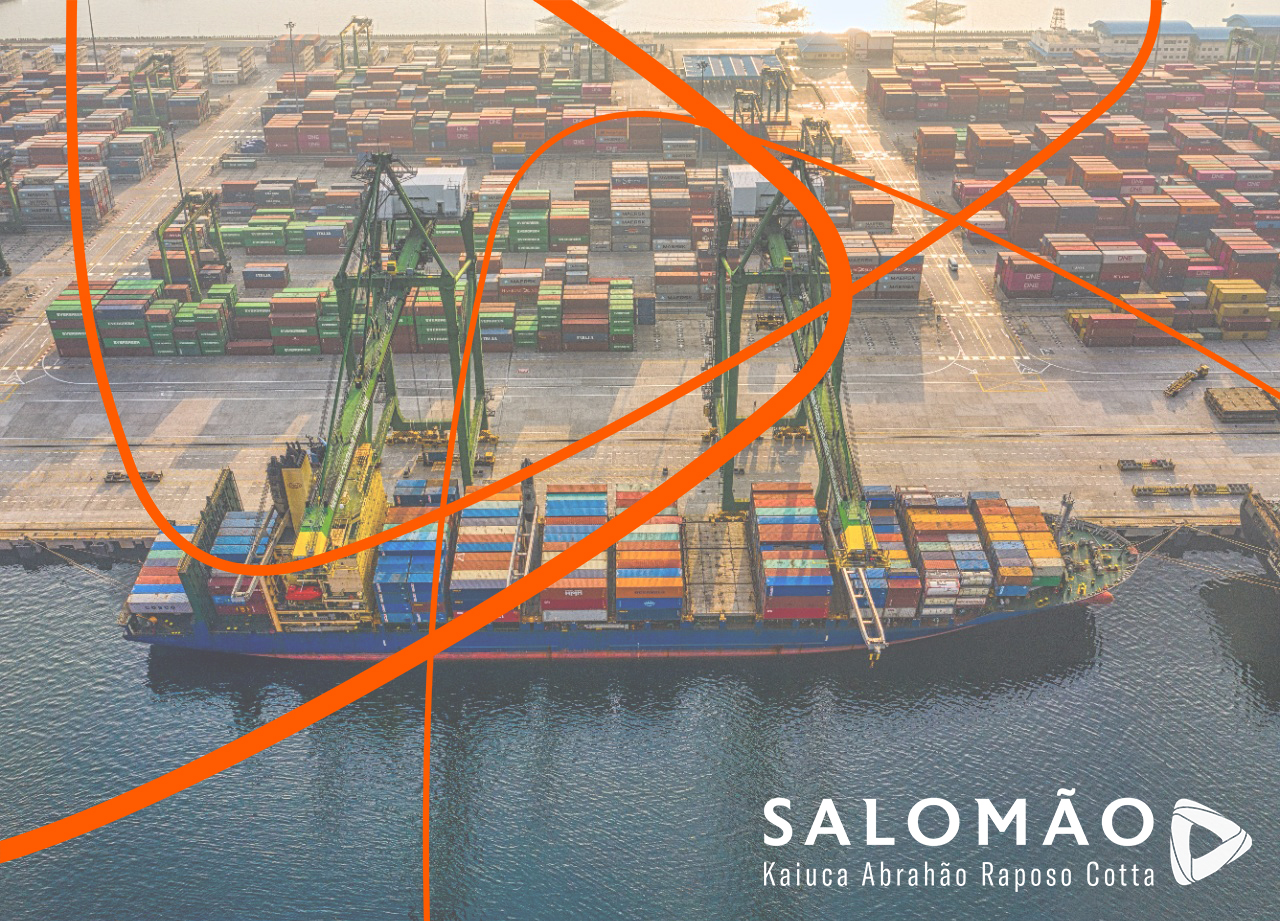Bill to a new commercial code aims to regulate maritime law in Brazil
Artigo publicado originalmente em inglês pela International Bar Association, disponível em https://www.ibanet.org/
Introduction
The Brazilian Commercial Code (the 'Code') currently in force dates back to 1850. It is one of the only laws of the time of the Brazilian Empire that is still in force in the Brazilian legal framework. Its creation began in the early 19th century, after the arrival of the Portuguese royal family in Brazil, which led to the opening of Brazilian ports to friendly nations and growth in commerce, followed by the declaration of independence in 1822.
As a civil law country, in order to regulate its growing commercial activity, especially by sea, the Brazilian Empire enacted the Code on 25 June 1850. The Code was inspired by the commercial laws in force in France, Spain and Portugal. It was divided into four parts: the first was 'general trade'; the second, 'maritime trade'; the third, 'bankruptcy'; and the fourth regulated the procedures of the code, totalling almost a thousand articles.
Over the decades, Brazil underwent severe reorganisation and legislation, having gone through six constitutions until the democratisation process in the 1980s, with the approval of the current Federal Constitution in 1988. Likewise, in the face of modern trade, several matters that were regulated by the Code began to be regulated by further laws. Thus, most of the Code was revoked and replaced by other laws, such as the Brazilian Civil Procedural Code of 1939, the Bankruptcy Law of 1945 and the Civil Code of 2002. However, to date, the part of the Code related to maritime trade is still in force.
It should be noted that the Code is not the only legislation regarding maritime trade. On the contrary, to understand the legal framework that rules the subject in Brazil, it is necessary to analyse the Civil Code of 2002, the Brazilian Civil Procedural Code of 2015, and several decrees and laws enacted over the years, as well as international conventions applicable in Brazil.
Bill to a new commercial code
In this scenario, aiming to update and gather commercial legislation in one statute, Bill No 1,572 was drafted by a deputy in 2011, with the objective of instituting a new Commercial Code, based on the draft prepared by 17 jurists, which included lawyers and judges.
Subsequently, in 2013, while the bill was being discussed in the Chamber of Deputies, a bill was presented by the President of the Senate to discuss the creation of a new commercial code (Bill No 487/2013). This bill eventually absorbed the previous one from the Chamber of Deputies, and is where all the debates surrounding the creation of the new commercial code are currently concentrated.
Since 2013, 33 amendments to the bill have been formally presented, in addition to numerous deliberation sessions with the opinion of several jurists and associations, both against and in favour of its approval.
The draft of the new commercial code aims to divide and regulate commercial legislation into: (1) general commercial law; (2) the person of the entrepreneur and its activity; (3) corporate legal business; (4) business societies and obligations; (5) agribusiness; and (6) maritime commercial law.
In relation to maritime law, the bill presents new rules and concepts in many areas that are currently regulated in the chapter still in force of the Code of 1850, and in many other laws and decrees. The book regulates mainly the following subjects:
- principles applicable to maritime trade;
- time bars;
- definitions regarding rules of application of the code;
- rules related to vessels, ownership and transfer of property;
- concepts of carrier, operator, maritime agent, non-vessel owning common carrier (NVOCC) and related liabilities;
- rules related to contracts to use a vessel, such as time charter, voyage charter, bareboat charter, certificate of approval (COA) and towage, as well as related obligations and rights;
- rules related to sea transport, including responsibilities and rights of the shipper, carrier, freight, cargo retention, demurrage, bills of lading and limitation of liability;
- privileged credits and mortgages; and
- general average.
Final remarks
Brazil, like many countries, has sparse maritime legislation, developed mainly by customs and practices over the last century, as well as several international treaties applicable in different areas.
As a country that adopts the Civil Law System, Brazil seeks to concentrate its legislation in codes. Thus, Brazilian legislators seem to be seeking to create a new commercial code aimed at consolidating existing laws on the subject, with the affirmation of doctrinal and jurisprudential concepts on maritime law already used in other countries, but also having in mind the protectionist nature of Brazilian law.
The Commercial Code Bill underwent several amendments, and its main wording was approved at the end of 2019. The expectation was that the bill would be debated and voted on in the Senate during 2020, but with the arrival of the Covid-19 pandemic, Congress turned its attention to other urgent matters.
When the situation stabilises, it is believed that the Commercial Code Bill will be submitted to the plenary of the Federal Senate so that all its provisions can be discussed and confirmed by senators. Afterwards, the bill will be sent to the Chamber of Deputies and then for presidential approval.

